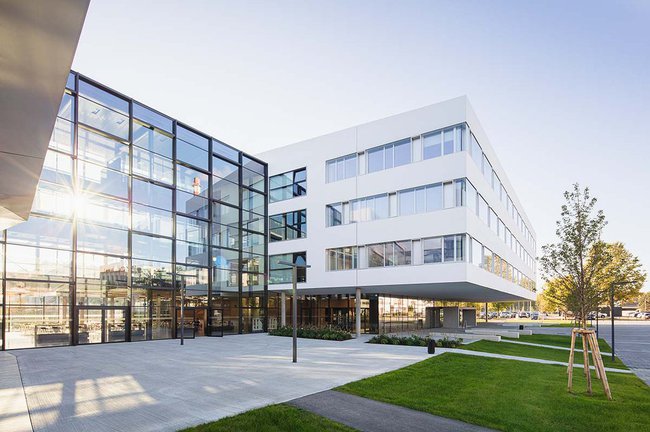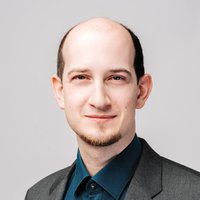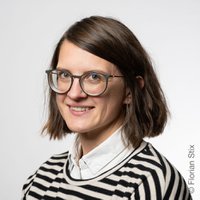Learning to Handle Disinformation
Young Adults Involved in New Research Project on Dealing with Disinformation

In their new project “Young Citizen Scientists Against Disinformation” (YCSAD), researchers of the St. Pölten University of Applied Sciences and the University for Continuing Education Krems explore the topic of disinformation in new communication channels from the perspective of young adults. These play a central role as “citizen scientists” in the project.
With the emergence of new communication technologies – keyword social media – the way in which information is shared has changed fundamentally. Media content can be created and shared in the blink of an eye. The way in which we access and retrieve information is subject to constant change as well. While this comes with many advantages, it has its risks at the same time: It is now easy to spread disinformation fast. Young people in particular spend a lot of time on social media and are thus especially affected by these developments.
With the new project “Young Citizen Scientists Against Disinformation”, Lukas Daniel Klausner, researcher at the Institute of IT Security Research and the Center for Artificial Intelligence at the St. Pölten UAS, and Bettina Pospisil, research associate at the Center for Infrastructural Security at the University for Continuing Education Krems, aim to examine the topic of disinformation from the perspective to young adults. The special characteristic about their project is the intensive involvement of the young citizen scientists.
“The highlight of the project is the focus on young people as the target group, stakeholders, and co-researchers at once. As this generation has grown up with the Internet and social media and had to learn how to handle them from childhood, we older generations have a lot to learn from them. I am convinced that in the course of our project, we can do away with some of the frequently voiced prejudices regarding today’s young people and their allegedly too uncritical approach to social media content”, says project co-lead Lukas Daniel Klausner.
Giving Young Adults a Voice
Within the framework of the research project, the young adults become so-called “citizen scientists” who use their know-how and experiences to examine the object of investigation from a broader perspective. As the everyday lives of young adults have changed considerably due to the constant confrontation with media content and information, it is themselves who become researchers in order to critically analyse (dis-)information.
“The project YCSAD has its origins in science and technology studies and would like to demonstrate that the way in which we conduct research actively affects our target group as well. This is why we understand our citizen scientists not merely as adolescents in need of assistance but first and foremost as experts of their own everyday lives with (dis-)information. Our objective is to explore – together with the citizen scientists – what they can learn from us, and what scientists and society can learn from their experiences and their ways of dealing with (dis-)information”, emphasises project lead Bettina Pospisil.
Strategies against Disinformation
Current research on disinformation primarily regards young adults as passive consumers of web content, thus underestimating their autonomy and ability to develop their own strategies for handling disinformation. To uncover these, the research team works with classes from three upper secondary schools in Lower Austria (HLW Tulln, HTL St. Pölten, BRG Krems).
Establishing a Platform against Disinformation
One of the pupils‘ tasks is to independently gather and analyse data on (dis-)information that is relevant for their everyday lives. In addition, the researchers prepare materials and questions for three topic areas that are discussed together with the young citizen scientists. Building on the findings from the research project, the need for and requirements regarding a disinformation platform are to be explored that meets the needs and wishes of young adults and helps them handle disinformation.
“This project can result in a fruitful exchange between the science realm and society. Young adults can learn something about scientific work, while scientists acquire knowledge about the experiences of young adults”, says Lukas Daniel Klausner who is very pleased with the project.
About “Young Citizen Scientists Against Disinformation”
The research project YCSAD is carried out jointly by the St. Pölten University of Applied Sciences and the University for Continuing Education Krems over a period of two and a half years. The project meets the strict quality criteria of the Austrian citizen science platform “Österreich forscht” and is listed on the platform.
The project receives funding from the Gesellschaft für Forschungsförderung Niederösterreich within the framework of the FTI-Strategie Niederösterreich 2027.
Further information is available on these research websites:

Dipl.-Ing. Dr. Lukas Daniel Klausner , BSc
Researcher Institute of IT Security Research Department of Computer Science and Security
Mag. Maja Sito , BA
Section Head Corporate PublishingMarketing and Communications